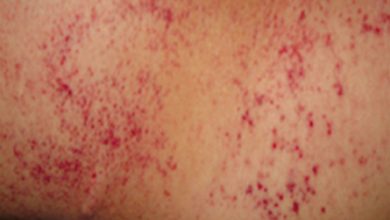When our blood sugar drops, we suddenly get nervous

When our blood sugar drops, we suddenly get nervous
Reactive hypoglycemia is the sudden drop in blood sugar seen in people without diabetes. The mildest complaints are fainting, feeling hungry, sweating, irritability, palpitations and restlessness.
Reactive hypoglycemia is the sudden drop in blood sugar seen in people without diabetes. This situation often occurs a few hours after eating high-carbohydrate foods. Normally, fasting blood glucose is between 80-100 mg / dl and postprandial blood glucose is between 120-130 mg / dl. In reactive hypoglycemia, blood sugar drops to 50 mg / dl and below. The mildest complaints in reactive hypoglycemia are fainting, feeling hungry, sweating, irritability, palpitations and restlessness. In more severe cases, dizziness, headache, blurred vision and speech impairment occur. Stupid behaviors and senseless outbursts of anger are common. Those whose sugar level is uncontrolled are constantly aggressive, not compromising, they do not like peace, they are often thought to be drunk because of their behavior. As blood sugar decreases, frequent eating is needed, especially foods with high glycemic index are consumed, which leads to rapid weight gain. Weight gain is mostly seen with fat accumulation around the belly.

INDEX FOOD
Glycemic index means the power of foods to raise blood sugar. Accordingly, foods are classified as high, medium and low glycemic index foods. Foods with high glycemic index are refined foods, and sugar, honey, jam, corn, white flour, potatoes, rice and carrots are the leading ones. We recommend consuming them as little as possible. Bran bread, oats, lentils, legumes and fruits are foods with low glycemic index and these are foods to be consumed more easily.
Hypoglycemia signs
- – Feeling of hunger
- – Sweating
- – Palpitations
- – Fainting
- – Excessive irritability
- – Drowsiness
ATTACKS MAY BE MORE HEAVY
The definitive diagnosis is made by sugar loading test. High insulin levels in the first hours and low blood glucose levels after the second hour indicate reactive hypoglycemia. Diabetic hypoglycemia is similar to reactive hypoglycemia, but hypoglycemic attacks are more severe. Reactive hypoglycemia is often associated with insulin resistance. Those with insulin resistance have high levels of insulin in their blood. When the pancreas is stimulated with carbohydrate foods, the insulin level increases even more, which decreases blood sugar rapidly. Therefore, reactive hypoglycemia is also defined as the footsteps of diabetes.
What are the drugs that cause Reactive Hypoglycemia?
The main drugs that cause reactive hypoglycemia are sulfamide group antibiotics, quinine and beta blockers.
What should we do?
- Feed 5-6 times a day with 2-3 hour intervals and small meals
- Avoid sugar and sugar products
- Reduce your consumption of white flour, rice and potatoes
- Focus on whole grains, legumes and vegetables
- Consume fruits not alone, but with wholemeal bread
- Do not do heavy sports
- Drink plenty of water
- Avoid smoking and alcohol





